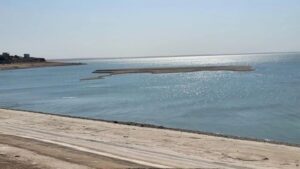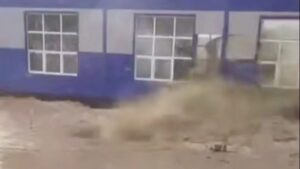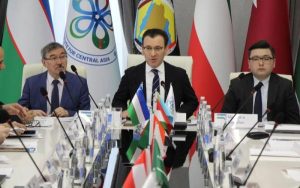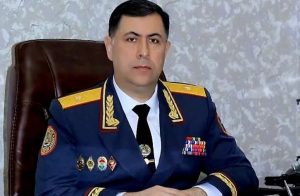A recent remark by Russian Foreign Minister Sergey Lavrov during his official visit to Uzbekistan has sparked a wave of public criticism and strong reactions from Uzbek officials and intellectuals.
Lavrov, while visiting the “Mourning Mother” monument (Memorial Grieving Mother) in Samarkand, questioned why there was no inscription in Russian, despite the presence of texts in Uzbek and English.
![“It would be better for them [Russia] to deal with their own problems rather than bothering us about our internal affairs," Alisher Kadyrov leader of Milliy Tiklan...
“It would be better for them [Russia] to deal with their own problems rather than bothering us about our internal affairs," Alisher Kadyrov leader of Milliy Tiklan...](/wp-content/uploads/2025/04/05aac5e4ffd2ac916133d505d88ca49a.avif)
“There is an inscription in English here, but I didn’t see any in Russian. Mother is the most sacred being,” Lavrov said to a local tour guide, according to Russian news agency TASS.
The comment was made in the presence of Uzbekistan’s Foreign Minister Bakhtiyor Saidov. The reaction in Uzbekistan was swift and resolute.
“We are not their colony”
Sherzodkhon Kudratkhodja, Rector of the University of Journalism and Mass Communications, stated that every sovereign nation has the right to determine the language used at its historical sites.
“It is wrong for the foreign minister of another country to criticize us from abroad. After all, we are not their colony!” Kudratkhodja emphasized. “Perhaps our own ministers should also ask bold questions during their visits to Russia—such as why our labor migrants face discrimination, or why Russian officials remain silent about rights violations by local authorities and law enforcement.”
Kudratkhodja further noted the irony of being lectured on sacred imagery while basic human rights are being violated elsewhere:
“If Lavrov wants to remind us that mothers are the most sacred beings, we should also remind him that human rights are sacred too.”
“Respect cannot be demanded”
Milliy Tiklanish party leader Alisher Kadyrov also condemned Lavrov’s remarks, arguing that such statements only serve to alienate the Uzbek public from Russian culture.
“Young Uzbeks are studying English, German, Turkish, and Arabic by choice—not because they are told to,” Kadyrov said. “The kind of respect Lavrov is demanding, and the sense of obligation he is trying to create, will only backfire.”
![“It would be better for them [Russia] to deal with their own problems rather than bothering us about our internal affairs," Alisher Kadyrov leader of Milliy Tiklan...
“It would be better for them [Russia] to deal with their own problems rather than bothering us about our internal affairs," Alisher Kadyrov leader of Milliy Tiklan...](/wp-content/uploads/2025/04/0153a8c1b30008f72a54c26508eb5be0.avif)
“Look for Russian inscriptions in Russia”
Lawyer and blogger Khushnudbek Khudoyberdiev took to social media to mock Lavrov’s tone.
“It felt as if an inspector had come down from above, asking: ‘Where is the Russian?’ If he had simply said, ‘We’d be happy to see a Russian inscription as well,’ that would have been more diplomatic,” Khudoyberdiev said. “There’s no need to rush to add Russian text. The existing inscriptions in Uzbek and English are enough.”
“We’ll consider it when Red Square has Uzbek signs”
Odiljon Tojiyev, a member of the Legislative Chamber of the Oliy Majlis, took a more defiant tone, saying:
“We’ll consider adding Russian text when Red Square in Moscow is written in Uzbek. “Uzbekistan chooses language based on opportunity, not obligation. Forced promotion of a foreign language breeds resentment—not admiration.”
Lavrov is in Samarkand on a two-day official visit and met with President Shavkat Mirziyoyev on April 23. According to the presidential press service, the two sides discussed the strengthening of Uzbek-Russian ties, as well as the strategic partnership and alliance between the countries.
Lavrov also commented on Uzbekistan’s cooperation with the European Union, suggesting limits on such relations. However, Uzbek officials reiterated that foreign policy decisions lie solely with the Uzbek state and reflect its multi-vector diplomatic approach.




